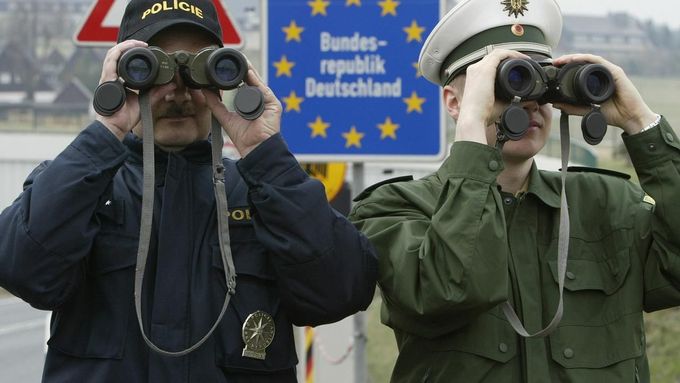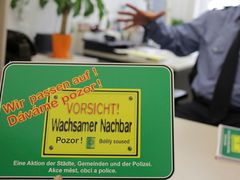Lobau/Zittau - "Number of robberies in Saxony grows. Czechs illegally withdraw money from German banks. Shots fired from Polish side of Nysa river against German house."
Five years after the Czech Republic and Poland joined the borderless Schengen zone, hardly a day goes by without a new story being published in the German state of Saxony's regional press about criminal offenses committed by Poles and Czechs, usually close to the border.
An Aktualne.cz reporter visited Germany's tri-border area with Poland and the Czech Republic to see the situation for herself.
Czech corruption makes German investors look elsewhere
German investors fed up with Czech business "jungle"
Saxony's entrepreneurs and retailers complain of increasingly hardened "thieves from the East", asking for border controls to be reintroduced.
The most common thing they say is: "This has to stop."
Towns and cities in the border areas report high number of stolen cars and pieces of expensive agricultural machinery worth tens of thousands of euros. Thefts take place in retail stores, construction sites, but also in yards, shacks and barns.
Another popular target for thieves are precious metals which can be sold in salvage yards
According to statistics of police of the Lower Silesian Upper Lusatia district squeezed between the Czech Republic and Poland, most thefts are reported from municipalities close to the border. The number of Germans charged with criminal offenses decreased in the district in 2011, while the number of foreign suspects grew.
"From the metal thieves we catch, one third are Germans, one third Poles and one third Czechs," Gorlitz district police president Conny Stiehl told Aktualne.cz.
Seifhennersdorf and Grossschonau, two municipalities on the border with the Czech Republic, reported 256 and 252 thefts, respectively, in 2011. In both cases it is roughly 50 more than in 2010.
Police: Drugs more serious problem
In addition, the southeastern part of Saxony is hit by drug-related criminality, mostly connected to pot and metamphetamine smuggled from the Czech Republic.
Local police seized drugs from 380 people last year. The number of metamphetamine-related crimes grew by 18 percent year-on-year.
"Life is already difficult enough here. There is high unemployment here, poverty," complained a Grossschonau man who introduced himself as Horst, even though it was obviously not his real name. "And now we should tie everything down with a chain, because what is not tied down gets taken away in the night by those," he pointed towards the Czech border.
However, German police statistics do not show any significant increase in criminality in the border areas with the Czech Republic after the country joined the Schengen zone in December 2007.
"The real and most serious problem of this region is drug criminality," said Gorlitz district police president Conny Stiehl. "But it is true that there are more property crimes," he admitted.
In 2002, German police registered 1,255 cases of more serious property crimes along the Czech border. The figure dropped to 737 in 2005. After the Czech Republic and Poland joined the Schengen zone, the number started to grow again - from 800 in 2008 to 979 in 2011.
Between 2009 and 2011, the number of burglaries in southeastern Saxony increased from 1,318 to 2,116. Over the same period, thefts in retail outlets, often committed by drug addicts, decreased.
Data manipulation?
Local people nonetheless assert that there are much more thefts in the region compared to 2007, accusing the police of manipulating the data.
Many of them put neighborhood watch signs written in German and Czech on their houses. The signs were provided by Saxony police and are used to deter possible thieves.
Needless to say, Czechs and Poles are met with extreme suspicion by local people in the border areas.

